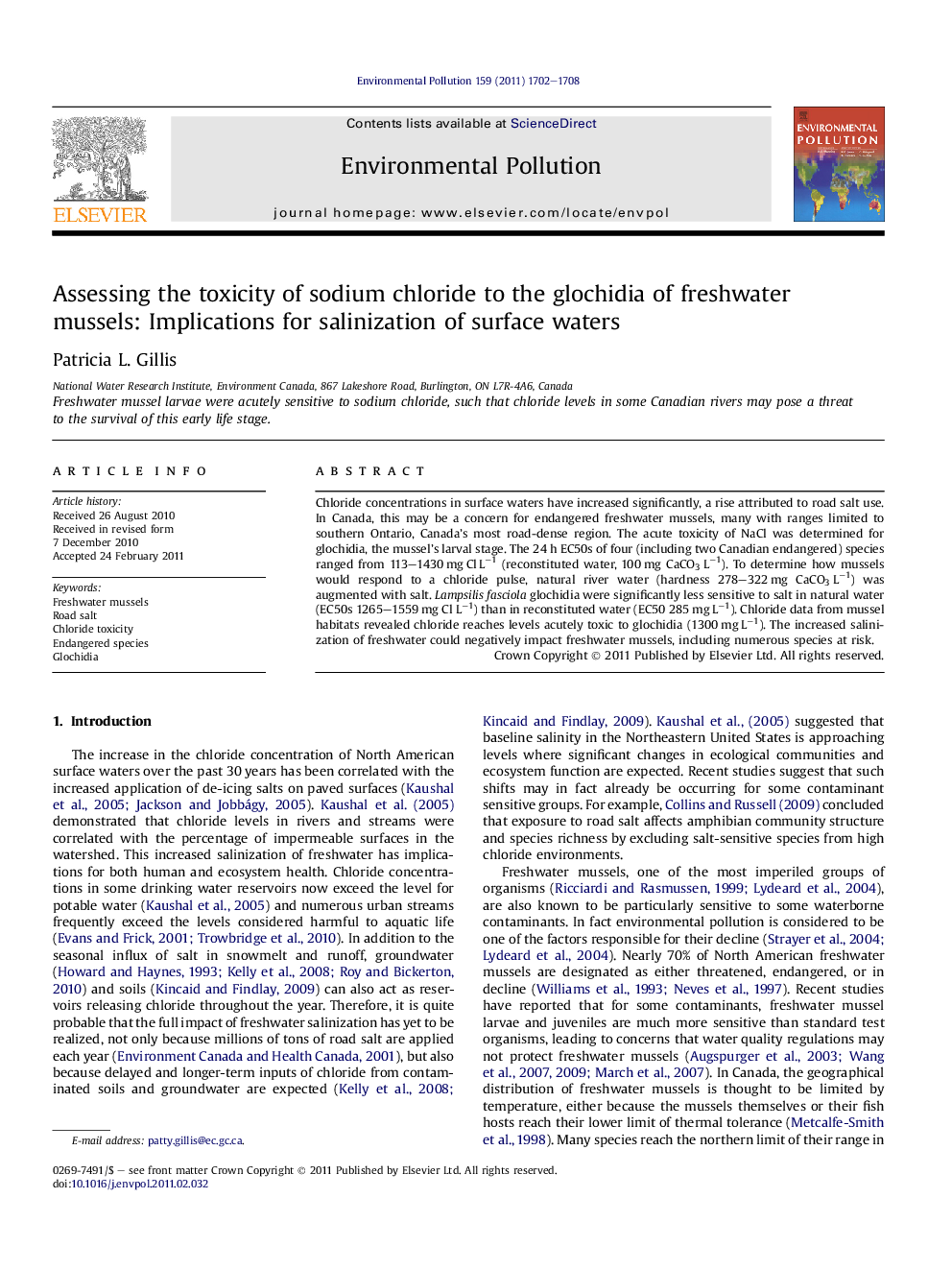| Article ID | Journal | Published Year | Pages | File Type |
|---|---|---|---|---|
| 4425521 | Environmental Pollution | 2011 | 7 Pages |
Chloride concentrations in surface waters have increased significantly, a rise attributed to road salt use. In Canada, this may be a concern for endangered freshwater mussels, many with ranges limited to southern Ontario, Canada’s most road-dense region. The acute toxicity of NaCl was determined for glochidia, the mussel’s larval stage. The 24 h EC50s of four (including two Canadian endangered) species ranged from 113–1430 mg Cl L−1 (reconstituted water, 100 mg CaCO3 L−1). To determine how mussels would respond to a chloride pulse, natural river water (hardness 278–322 mg CaCO3 L−1) was augmented with salt. Lampsilis fasciola glochidia were significantly less sensitive to salt in natural water (EC50s 1265–1559 mg Cl L−1) than in reconstituted water (EC50 285 mg L−1). Chloride data from mussel habitats revealed chloride reaches levels acutely toxic to glochidia (1300 mg L−1). The increased salinization of freshwater could negatively impact freshwater mussels, including numerous species at risk.
► Compared to other aquatic organisms glochidia are very sensitive to chloride. ► Glochidia were less sensitive to salt in natural water than in reconstituted water. ► Glochidia were less sensitive to salt in hard water than in soft water. ► Road salt runoff may pose a threat to the reproduction of freshwater mussels. ► Salinization of freshwater could negatively impact numerous species at risk.
